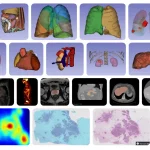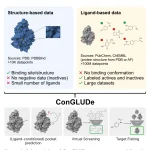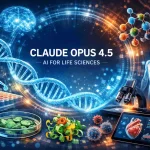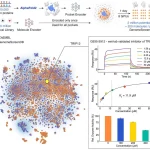A recent study utilized digital twin technology to identify new markers for atherosclerotic coronary artery disease (ASCAD). The study was conducted by G3 Therapeutics, a specialist in multi-omics, and Aitia, an AI company with Gemini Digital Twin technology. The study indicates that triglyceride-rich LDL particles may be a unique biomarker for ASCAD and may also provide new opportunities for the treatment of the condition.
This is a significant breakthrough in the field of cardiovascular disease research as it opens up new possibilities for early detection and targeted treatment of ASCAD, which is a major contributor to heart disease and stroke. The use of digital twin technology in the research further highlights the potential of this innovative approach in identifying new biomarkers and exploring new treatment options for various diseases. These findings are expected to have a significant impact on the field of cardiovascular medicine and will likely lead to further research in this area.
According to Szilard Voros, MD, CEO, and founder of G3 Therapeutics, for a long time, the research team concentrated solely on LDL-cholesterol as the primary target for treating atherosclerotic coronary artery disease. This new finding of triglyceride-rich LDL particles presents new possibilities for developing novel diagnostic and treatment methods for patients suffering from severe cardiovascular disease.
Artificial intelligence (AI) advancements have significantly increased its application in cardiovascular clinical research. One example of this is the in silico marker discovery for coronary artery disease, which was reported by a team from Mount Sinai in December of last year. Additionally, researchers at the Massachusetts General Hospital also used a deep learning tool with a single X-ray to predict a patient’s 10-year risk of death from a heart attack or stroke. These studies demonstrate the potential of AI in identifying new biomarkers and predicting potential health risks for patients.
Digital twins are virtual models that are designed to mimic an object or process with great accuracy. They have also been utilized in cardiovascular research, offering a new approach to understanding the underlying mechanisms of various diseases. The use of digital twins in research has the potential to provide more accurate predictions and a deeper understanding of diseases and may also lead to new discoveries and treatment options.
The researchers evaluated 665 individuals from G3 Therapeutics’ GLOBAL clinical study. They used Bayesian networks created from 37,000 molecular measurements and 99 standard biomarkers per participant to investigate the potential causal relationship of certain biomarkers.
It was discovered that the impact of triglyceride-rich LDL particles has no relation to the cholesterol level of LDL particles. In the Bayesian study, LDL-TG was found to be directly associated with atherosclerosis in more than 95% of the groups.
The team’s research confirmed that triglyceride-rich LDL particles could be a potential marker for ASCAD through genetic validation using the hepatic lipase gene. This evidence supports the idea that these particles may play an important function in the development of the disease. Additionally, the analysis revealed that other factors, such as atherogenic lipoproteins, inflammation, and dysfunction of the endothelial cells, also contribute to ASCAD, further strengthening the validity of these new findings.
According to Colin Hill, CEO and co-founder of Aitia, the use of cutting-edge technology such as causal AI and digital twins has allowed for a major breakthrough in understanding the underlying causes of cardiovascular disease. Also, this approach has successfully uncovered new insights from large-scale data, which is a significant step forward in cardiovascular research. The use of digital twin technology allowed for the rapid discovery of new drivers of atherosclerosis, including triglyceride-rich LDL particles, which have been elusive for many years. This approach, which reconstructed 70 years of cardiovascular biology data in a short period of time without any preconceived hypotheses, marks the start of a new era of AI-driven technology in biomedical research. This breakthrough has the potential to revolutionize the way we understand and treat cardiovascular disease.
The GLOBAL study by G3 Therapeutics is a large-scale, international study that aims to identify new disease networks and biomarkers. The study will recruit up to 10,000 patients from multiple centers and will combine various advanced technologies such as whole genome sequencing, whole genome methylation, whole transcriptome sequencing, unbiased proteomics, metabolomics, lipidomics, and lipoprotein proteomics with coronary computed tomographic (CT) angiography to classify disease in patients. This is the most prominent and comprehensive study of its kind and is expected to provide helpful insights into the underlying mechanisms of cardiovascular disease.
Aitia is a company that specializes in using a combination of “Causal AI and Digital Twins” to discover new and effective drugs in the field of oncology, neurodegenerative disorders, and immunology. They leverage the convergence of multi-omic patient data, high-performance computing, and causal learning to identify breakthrough drugs.
Gemini Digital Twins are currently being utilized to identify new treatments and speed up R&D in various diseases such as multiple myeloma, prostate cancer, Alzheimer’s Disease, Parkinson’s Disease, and Huntington’s Disease. Aitia collaborates with some of the leading pharmaceutical companies, academic research centers, medical societies, multi-omic data companies, and patient advocacy groups around the world.
The study highlights the effectiveness of utilizing big biological data and causal AI in developing innovative treatments for patients.
Conclusion
The discovery of new biomarkers for atherosclerosis using digital twin technology is a significant breakthrough in the field of cardiovascular disease research. The identification of triglyceride-rich LDL particles as a novel diagnostic marker for ASCAD opens up new possibilities for early detection and targeted treatment of the condition. The application of digital twin technology in this research further highlights the potential of this innovative approach in identifying new biomarkers and exploring new treatment options for various diseases. These findings are expected to have a significant impact on the field of cardiovascular medicine and will likely lead to further research in this area. The combination of big biological data and causal AI is expected to bring entirely novel treatments to patients with atherosclerosis and other diseases.
Article Source: Reference Paper | Reference Article
Learn More:
Top Bioinformatics Books ↗
Learn more to get deeper insights into the field of bioinformatics.
Top Free Online Bioinformatics Courses ↗
Freely available courses to learn each and every aspect of bioinformatics.
Latest Bioinformatics Breakthroughs ↗
Stay updated with the latest discoveries in the field of bioinformatics.
Dr. Tamanna Anwar is a Scientist and Co-founder of the Centre of Bioinformatics Research and Technology (CBIRT). She is a passionate bioinformatics scientist and a visionary entrepreneur. Dr. Tamanna has worked as a Young Scientist at Jawaharlal Nehru University, New Delhi. She has also worked as a Postdoctoral Fellow at the University of Saskatchewan, Canada. She has several scientific research publications in high-impact research journals. Her latest endeavor is the development of a platform that acts as a one-stop solution for all bioinformatics related information as well as developing a bioinformatics news portal to report cutting-edge bioinformatics breakthroughs.






